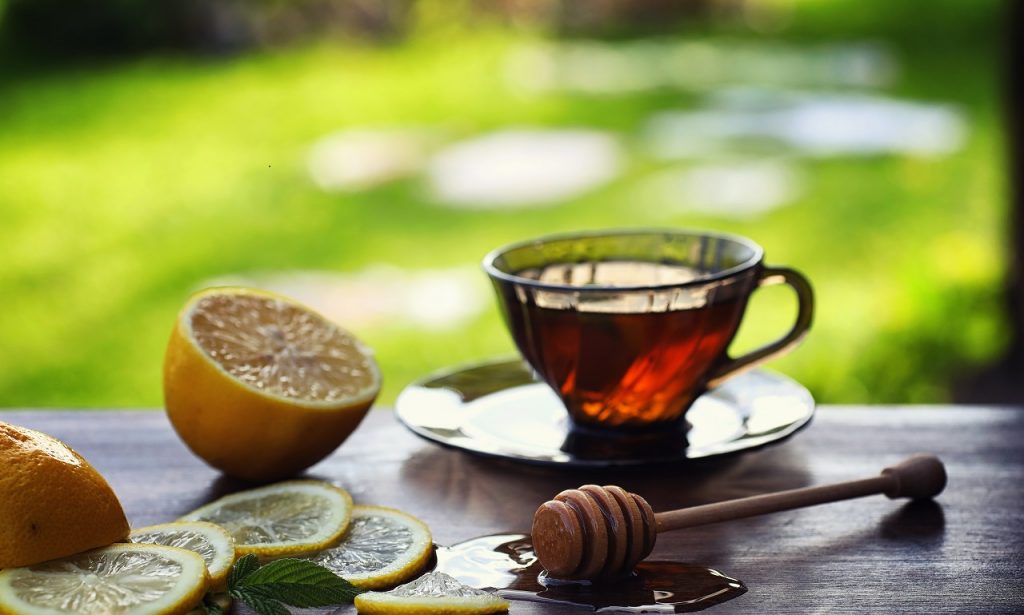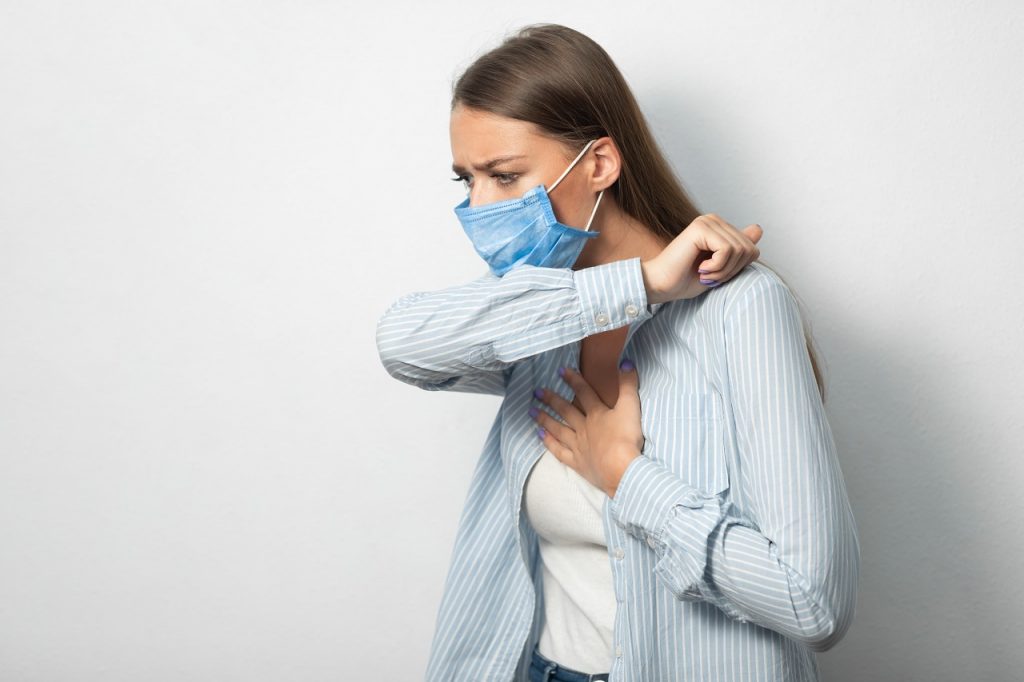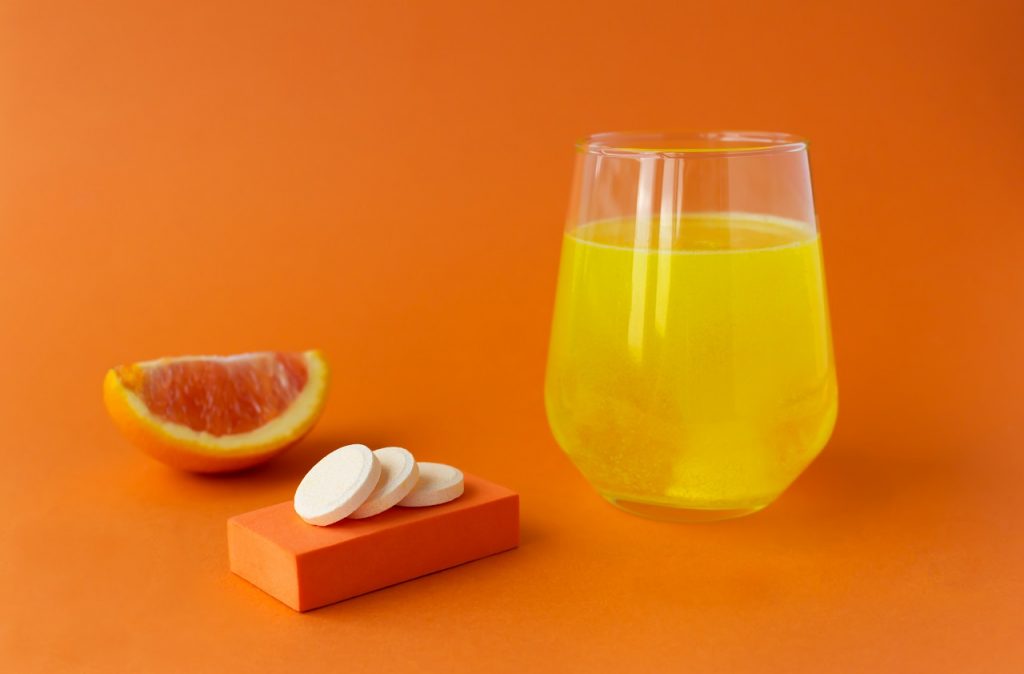 With the increasing pollution levels, exposure to chemicals, the ongoing pandemic and the unpleasant viral & flu, we wouldn’t be particularly surprised if you were looking for home remedies for dry cough. A dry cough is a nonproductive cough that doesn’t produce phlegm or mucus. Dry cough is generally caused by viral infections and allergies. It is very necessary to consult a doctor to find the underlying cause of cough. Along with prescribed medications and treatment, you can also try a couple of home remedies to find relief.
With the increasing pollution levels, exposure to chemicals, the ongoing pandemic and the unpleasant viral & flu, we wouldn’t be particularly surprised if you were looking for home remedies for dry cough. A dry cough is a nonproductive cough that doesn’t produce phlegm or mucus. Dry cough is generally caused by viral infections and allergies. It is very necessary to consult a doctor to find the underlying cause of cough. Along with prescribed medications and treatment, you can also try a couple of home remedies to find relief.
- Turmeric Milk: or Haldi ka Doodh, as it is popularly known in India, is one of the oldest and most trusted home remedies for dry cough. Turmeric is anti-viral, anti-bacterial and anti-inflammatory, which helps in treating infections. Also known as Golden Milk in the west, it is easy to prepare and highly effective. Drink a cup before going to bed to see the best results!
- Honey Tea: Honey is an important ingredient for many different home remedies. It is well-known for its anti-inflammatory properties that help ease the throat. You can use honey in various ways, like adding a teaspoon in warm milk or water. You can also just have a spoonful before going to bed.
- Masala Chai: Masala Chai or Spiced Tea is one of the easily available home remedies for dry cough especially in Indian house setups. Apart from soothing the irritation in the throat, the antioxidant quality of cardamom and cloves also help release the toxic and cough-triggering effects of pollution and dust particles. Just add black pepper, cinnamon powder, cardamom and cloves while preparing tea and sip while hot!
- Ginger: eases a dry or asthmatic cough, as it has anti-inflammatory properties. It also relieves nausea and pain. Prepare a soothing ginger tea by adding 20–40g of fresh ginger slices to a cup of boiling water. Allow to steep for a few minutes before sipping. Add honey or lemon juice to improve the taste and further soothe a cough.
- Lukewarm Salt-Water Gargle: Gargling is the most common home remedy for dry cough. For relief from dry cough, try gargling with lukewarm salt-water. This soothes the throat by adding moisture to it. Add half a teaspoon of salt to a cup of lukewarm water till it dissolves completely. Let the mixture sit at the back of the throat for a few seconds before spitting it out. Gargle with salt-water three times a day until the cough improves.
- Eucalyptus Oil: has natural healing energy which makes it helpful in relieving dry coughs. Use eucalyptus oil to decongest your throat. This oil not only promotes vitality but also helps in treating the infection. Add eucalyptus oil to a cotton cloth piece and keep it near your nose and mouth. The other way to inhale this is to add 2-3 drops to hot water and inhale the steam.
- Bromelain: is an enzyme that comes from pineapples. Bromelain has anti-inflammatory properties and may also have mucolytic properties. This means that it can break down mucus and remove it from the body. Drink pineapple juice daily to reduce mucus in the throat and suppress coughing.
Warm liquids to Find Relief from Dry Cough
Staying hydrated is important when you’re down with dry cough. Warm liquids reduce the symptoms of a sore throat and cough and thus, provide immediate relief from dry cough. Hot beverages that may be helpful include:
- Clear broths
- Herbal teas
- Decaffeinated black tea
- Warm water
If you haven’t noticed any improvement in your dry cough even after 7 days, it is necessary that you consult your doctor. Home remedies for dry cough can be an added measure but not a permanent solution for a persistent cough.
We hope these home remedies for dry cough help you find relief! Is there a personal home remedy that works for you? Share it with us in the comments below!
To know more home remedies, ask your GOQii Coach by subscribing for personalized coaching here: https://goqiiapp.page.link/bsr
#BeTheForce
 The nasty Coronavirus can have a damaging effect on your body, making it weak, even after months of its occurrence. It mainly causes damage to the lungs as well as other organs. Hence, the body requires time to recover to its formal state. A few common symptoms observed from the infected people include fatigue, loss of appetite and even breathlessness. Even if you have battled the virus, you still need to shower a lot of care and love to your body to ensure complete healing. Here are some home remedies that can help you recover from the infection.
The nasty Coronavirus can have a damaging effect on your body, making it weak, even after months of its occurrence. It mainly causes damage to the lungs as well as other organs. Hence, the body requires time to recover to its formal state. A few common symptoms observed from the infected people include fatigue, loss of appetite and even breathlessness. Even if you have battled the virus, you still need to shower a lot of care and love to your body to ensure complete healing. Here are some home remedies that can help you recover from the infection. If you or your loved one is recovering from the COVID-19 infection, taking proper care for curing your COVID related cough is important. Currently, cough is one of the most common symptoms of the viral infection and can manifest in the form of both wet (productive) cough as well as dry persistent cough.
If you or your loved one is recovering from the COVID-19 infection, taking proper care for curing your COVID related cough is important. Currently, cough is one of the most common symptoms of the viral infection and can manifest in the form of both wet (productive) cough as well as dry persistent cough.



